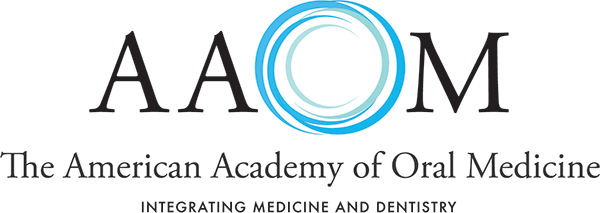Dry MouthThe many causes of dry mouth, combined with its variable severity, mandate that treatment be individually tailored to fit each patient’s situation. The treatment goals are summarized to the right. When the oral dryness is caused by a medication, there is a possibility the condition may improve as the body adjusts to the medicine. For other medication-induced cases, the prescribing physician may be able to either prescribe an alternate drug or adjust the dosing of the offending drug in order to reduce the drying side affect. However, to treat most instances of dry mouth, it will be necessary to use a combination of the various strategies discussed below. General Treatment Strategies See your dentist regularly: Due to your increased risk for oral disease, your dentist may recommend you undergo more frequent check-ups, professional cleanings and in-office fluoride applications. It is important to have any necessary dental work done as soon as possible, since oral conditions such as caries, periodontal disease, and yeast infections may progress more rapidly in the patient with a dry mouth. Perform oral hygiene as instructed: Your dentist or dental hygienist will reinforce the importance of regular brushing and flossing and may offer additional instructions regarding your daily oral hygiene. He or she may also recommend a prescription strength fluoride to be used in addition to your regular toothpaste. Your ability to consistently accomplish these daily oral hygiene measures, as instructed by your dentist, is one of the most important steps in successfully managing the complications of oral dryness. Monitor your mouth for oral candidiasis (thrush): Patients with a dry mouth are at risk for oral candiasis, particularly the erythematous form (See Patient Information Sheet - Oral Yeast Infections) . If you suspect you may have oral candidiasis, you should promptly see your dentist for an evaluation and management. Avoid sugary food and drinks: Decrease your fermentable carbohydrate intake, especially for sticky foods such as cookies, bread, potato chips, gums, candies. Avoid the frequent intake of acidic beverages (such as most carbonated and sports replenishment drinks) and lemon products. Frequently sip fluids: Frequent sips of small amounts of fluids, especially water, can be quite helpful in diminishing the effects of oral dryness. Many patients keep a bottle of water handy to moisturize their tissues. However, excessive sipping of water can actually reduce the oral mucus film lining the mouth and worsen your symptoms. Letting chips of ice dissolve in the mouth may also be useful. Use fluids while eating: Taking fluids while eating is an essential common sense strategy for dry mouth patients. A useful approach is to take a drink of water or beverage to hydrate the mouth, take a bite of food, and then wash it down with another sip. Avoid caffeine: Caffeine is as a mild diuretic which promotes fluid loss and may worsen dry mouth. If possible, one should avoid or limit items which contain significant amounts of caffeine such as coffee, tea, and certain soft drinks. Protect dry lips: Dry cracked lips contribute to the annoyance of oral dryness. The regular use of topically applied oil-based balms or lipsticks may provide soothing relief. The use of vitamin Econtaining balm may also be helpful. These products should be replenished on regular basis to ensure their effectiveness. Use a humidifier: The dry ambient air of most modern homes contributes to one’s sensation of dryness. The use of a humidifier, particularly at night, helps address this concern.
Use sugar-free salivary stimulants: To the extent that functional salivary tissue remains, the regular use of gums, mints, and candies can help stimulate salivary flow (see Table below for partial listing). Mints, lozenges, and candies should be allowed to dissolve slowly in the mouth. Dry mouth patients with natural teeth should avoid agents that contain sugar, due to their increased caries risk, and are encouraged to use products containing xylitol (see Box to right).
Saliva substitutes / moisturizing sprays / gels: There are many over-the-counter (OTC) products that may aid in moisturizing and lubricating the oral tissues (see Table below for a partial listing). These agents are typically available as gels or liquids. Their effects are temporary but may prove helpful for those with dry mouth. Using a saliva substitute instead of drinking water prior to sleep and when awakened, may reduce the need go to the bathroom during sleep.
Alcohol free mouth rinses: There are numerous marketed mouthwashes that either sooth the mouth or help with re-mineralizing teeth (see Table below for a partial listing). For most patients with dry mouth, mouth rinses that are alcohol free are preferred.
Secretogogue Therapy QUESTIONS AND ANSWERS ABOUT DRY MOUTH Q: Are certain products superior? Q: Where do I get these products? Prepared by V Sankar, N Rhodus & the AAOM Web Writing Group Spanish Translation - Traducción Español The information contained in this monograph is for educational purposes only. This information is not a substitute for professional medical advice, diagnosis, or treatment. If you have or suspect you may have a health concern, consult your professional health care provider. Reliance on any information provided in this monograph is solely at your own risk. |
|||||||||||||
